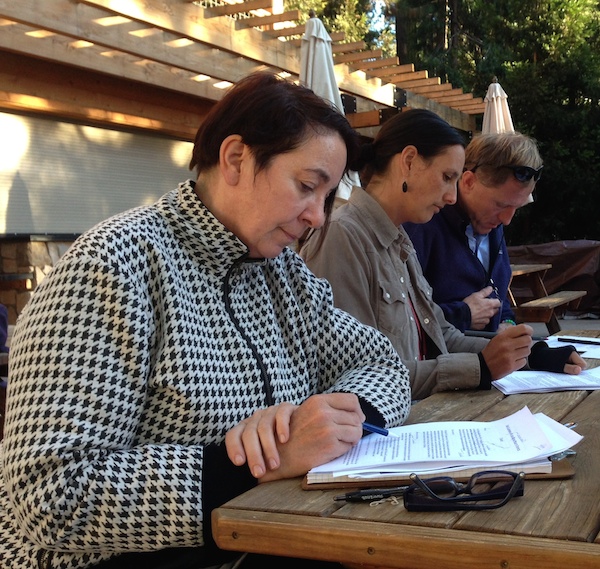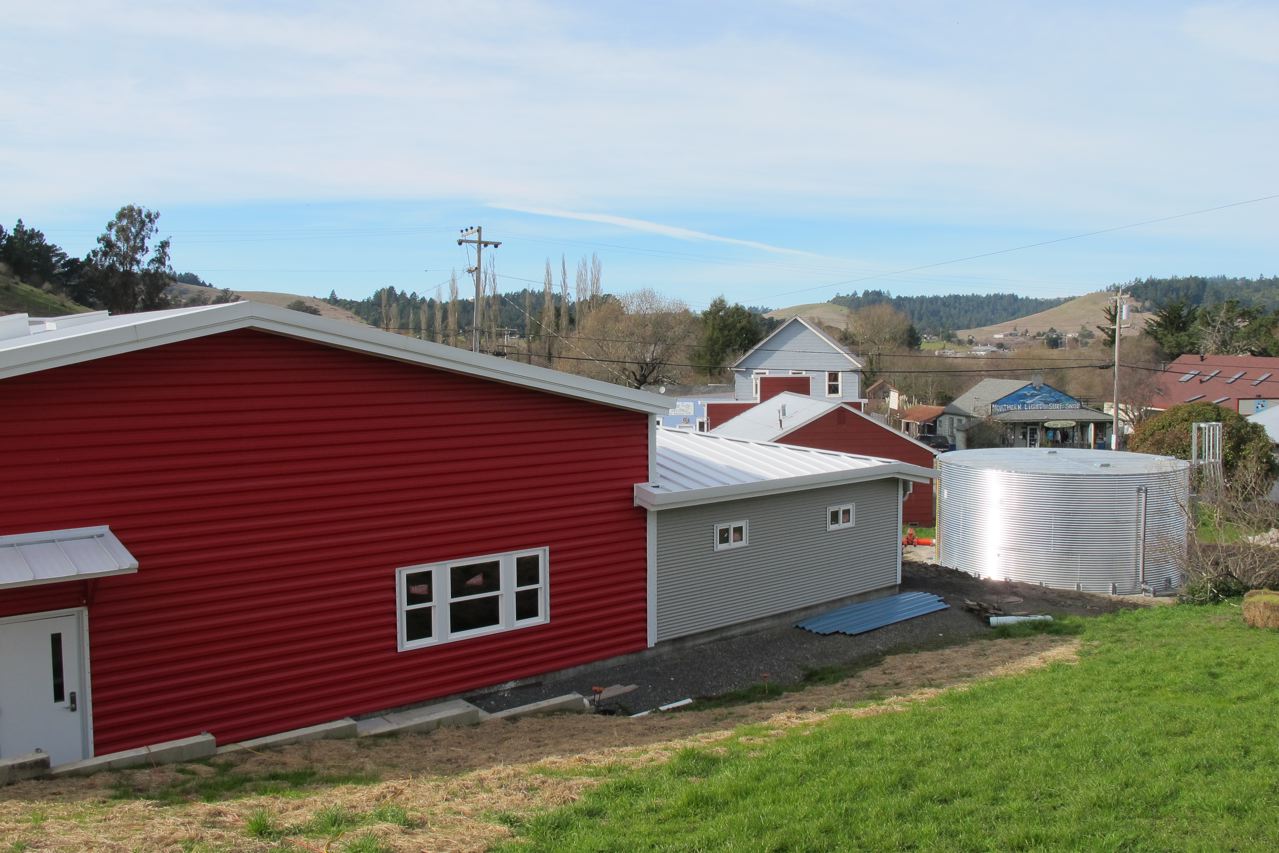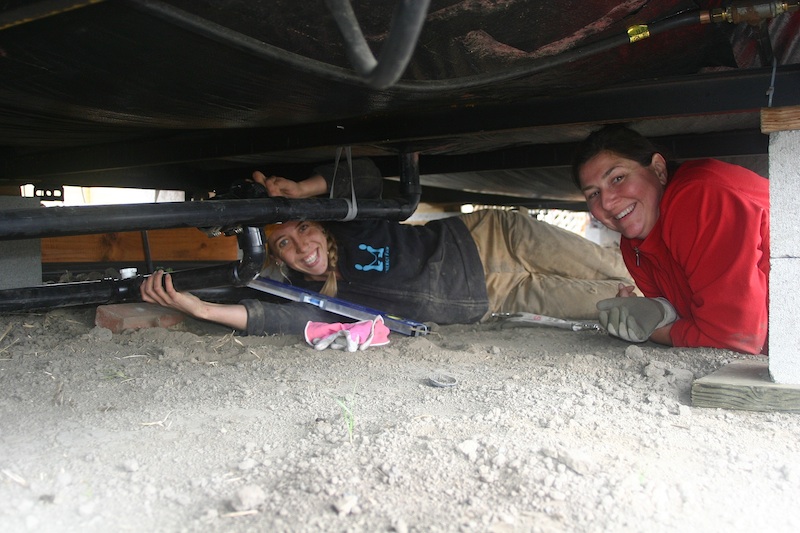The drought highlights the need for some common sense water saving and reuse practices such as composting toilets and integrated greywater systems that not only irrigate landscapes but reuse water indoors for flushing toilets and other non-potable uses. But we still don’t have the policies in place that allow for their widespread implementation in California. What are the steps to changing these rules?
OAEC and the Decentralized Water Policy Council are addressing this question by providing appropriate oversight of integrated onsite systems for the protection of public health. With our partners at the California Onsite Water Association (COWA), we are working to raise the ecological literacy of state policymakers and regulators, supplying them with the awareness and education they need to permit ecological water management technologies. In our experience, sharing science-based data, real-life models, clear descriptions of the benefits, supplying appropriate monitoring and certification schemes, and bringing regulators and water project managers together is essential for engaging our public health officials in supporting change.
When regulators are trained to understand ecological water management options and levels of safety, they’re more likely to support them.
COWA is a group of engineers co-convening the Decentralized Water Policy Council with OAEC. COWA has a legacy of supporting regulators in their knowledge of wastewater management. OAEC is thrilled to be partnering with them at the intersection of education, technology and policy, bringing ecological concepts into the regulatory arena. During COWA’s upcoming training, key recommendations from the Council will be disseminated and shared.
Next COWA training
 COWA hosts trainings in which they update regulators on the recommendations of the California Decentralized Water Policy Council, thus increasing regulator literacy around ecologically appropriate, decentralized water management solutions.
COWA hosts trainings in which they update regulators on the recommendations of the California Decentralized Water Policy Council, thus increasing regulator literacy around ecologically appropriate, decentralized water management solutions.
Register for their upcoming training:
Principles of Plan Checking
Date: Thursday, June 25 (7:30am-5pm)
Location: County of Sacramento—10590 Armstrong Ave., Mather, California 95655, USA
This one-day course explores the process of designing and reviewing a plan set for the construction of an onsite wastewater treatment system (OWTS). Participants will learn how to analyze a set of plans in order to facilitate successful installation and operation of the OWTS. In addition, participants will gain insight into the value of quality control as it pertains to the protection of public health on a larger scale. A valuable team component engages participants in the construction and review of a plan set practicing the evaluation of property characteristics, equipment selection, and component identification. The instructor will be present to facilitate the activity and to answer questions that arise.
Interested in a greywater webinar?
Our allies at Greywater Action, founded by Council member and author Laura Allen (The Water-Wise Home: How to Conserve and Reuse Water in Your Home and Landscape. Storey Press, 2015), lead workshops and presentations on greywater system design and construction, as well as work with policymakers and water districts to develop codes and incentives for greywater, rainwater harvesting, and composting toilets. Greywater Actions believes that decentralized conservation measures can play a critical role in drought resilience, climate adaptation, and the return of healthy stream ecosystems.
Check out their upcoming webinar:
Greywater Education Webinar
Greywater Action is hosting a three-part webinar series for people who want to educate their communities about greywater. In this series, you will learn how to give two greywater presentations, and will have full access to the presentations for your future use.
The webinar will be held Wednesdays from 2-4pm on June 17th, June 24th, and July 1st.
Part 1: Greywater 101 or Drought-Proof Your Landscape With Greywater. Wednesday, June 17th from 2-4pm.
Part 2: How to Design and Install a Laundry-to-Landscape Systems. Wednesday, June 24th from 2-4pm.
Part 3: How to Make Your Community Greywater Ready: Work with local agencies and irrigation stores. Wednesday, July 1st from 2-4pm.
Cost: $30- $50 sliding scale (1 registration per organization, multiple staff members can use the same registration fee)
Attendance is encouraged for water conservation staff, environmental health directors, inspectors and code officials, environmental organization staff, green committee leaders, irrigation store employees, plumbers, landscapers and contractors.







